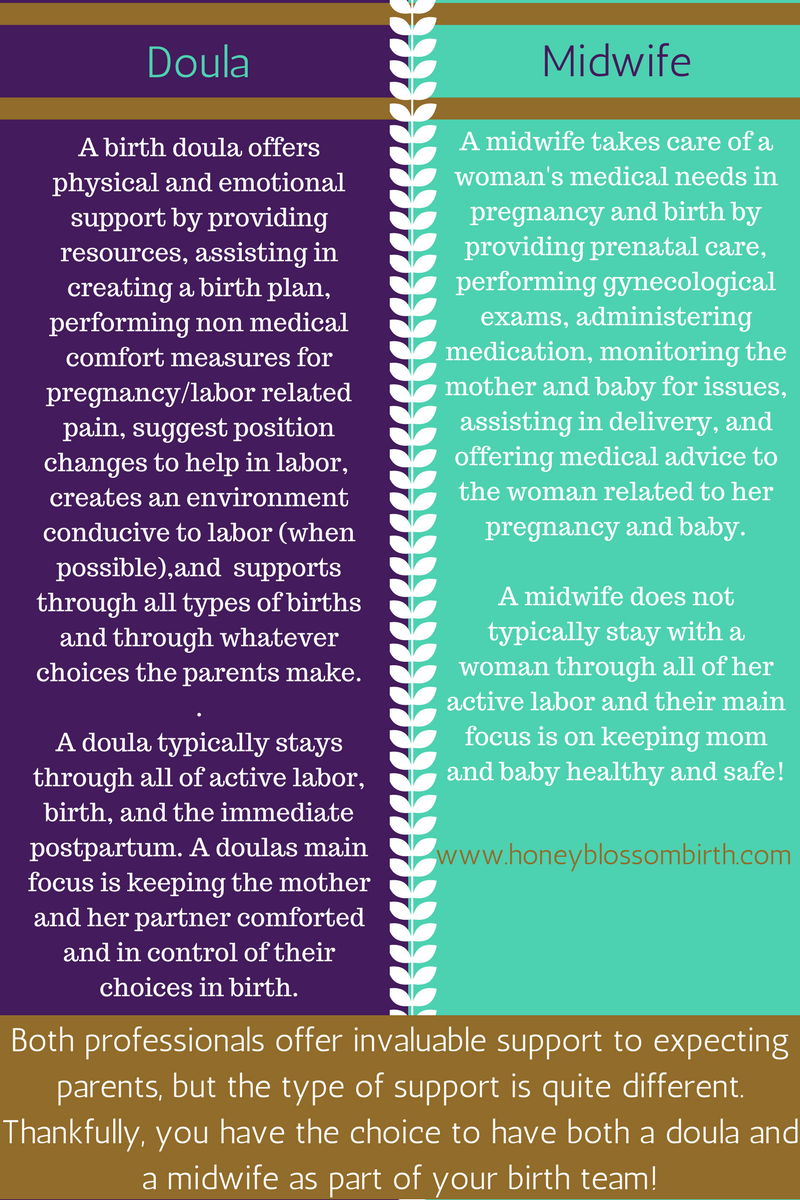The Difference Between a Birth Doula and a Midwife
There's a long list of professional services available to expecting parents and sometimes keeping track of who does what can be a little confusing. One common misconception of roles are those of a doula and a midwife. Many people believe that they perform many of the same duties and/or that a doula is just an alternate term for midwife. That's actually quite untrue and the professions, while both of great benefit to expecting parents, vary greatly in the services provided.
A midwife takes care of a woman's medical needs in pregnancy and birth by providing prenatal care, performing gynecological exams, administering medication, monitoring the mother and baby for issues, assisting in delivery, and offering medical advice to the woman related to her pregnancy and baby. Midwives are often proponents of low intervention vaginal births, and are not trained to perform cesarean births, like an OB is. They do sometimes spend more time with an expecting parent than an obstetrician (especially in a homebirth setting), but are often not available to stay with the laboring mother for the entirety of her active labor stage. A midwifes main focus in pregnancy and labor is keeping the mother and baby safe and healthy.
A birth doula provides non medical care to expecting women and their partners during pregnancy and birth. This means doulas do not do anything medically related, so no cervical dilation checks, no fetal monitoring, and they can not offer medical advice. What a doula does do is provide you with resources and knowledge so that you can learn about your care options, assist in creating a birth plan, perform (or coach your partner in performing) non medical comfort measures for pregnancy and labor related pain, and suggest position changes to help in labor. Additionally, they stay with you through all of active labor, birth, and the immediate postpartum time period and/or through preparations for a cesarean birth, during cesarean birth (if hospital protocol allows), and post cesarean. They help to create and keep your birthing space a comfortable environment conducive to labor, help facilitate communication between the parents and medical care providers (a doula should never speak on your behalf ), and doulas offer the comfort of having someone knowledgeable about the birthing process with you through it all, as well as offering emotional support to the mother and her partner. A doulas main focus is keeping the mother and her partner comforted and in control of their choices in birth.
As you can see, both professionals offer invaluable support to expecting parents, but the type of support is quite different. Thankfully, you have the choice to have both a doula and a midwife as part of your birth team!

